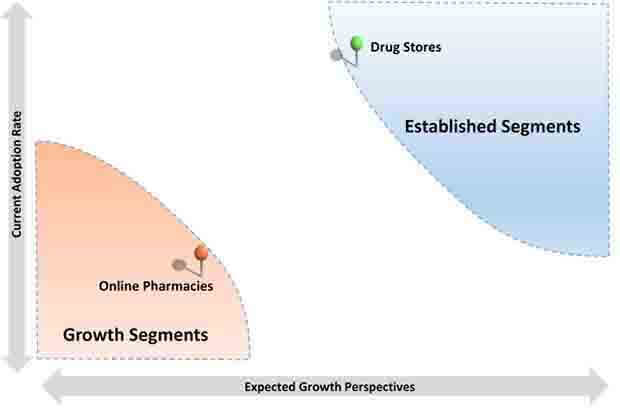Pigment Correcting Products Market Segmented By Product Type that is Creams, Gels, Serum, Peels and Supplements.
Industry: Healthcare
Format: PPT*, PDF, EXCEL
Delivery Timelines: Contact Sales
Report Type: Ongoing
Report ID: PMRREP22918
Pigmentation is a growing concern among young adults nowadays due to frequent exposure of body parts such as the face and hand to sunlight. The pigment melanin protects skin from the harmful UV rays. Increase in melanin production can lead to change in the skin color. Hyperpigmentation and overproduction of melanin are related to exposure of the skin to sun, acne scarring, hormonal changes and nutritional deficiency.
Skin pigmentation refers to the skin disorder that causes either darkening or lightening of skin compared to existing skin color. The most common pigmentation disorders are melasma, vitiligo, albinism and post-inflammatory hyperpigmentation. These pigmentation-related diseases cause the skin to become dark in patches. In 2016, 5-6 million women of U.S. were affected by melisma.
It is estimated that 60% of pregnant women in U.S. are affected by melisma, whereas 80% in Mexico. Young people are very concerned about skin-related diseases owing to which they prefer pigment correcting products. Topical antioxidants products are the most preferred remedies for pigment correction.
The antioxidants such as vitamin A & C are used on daily basis to protect and rebuild the cells of the skin. Daily use of SPF moisturizer or sunscreen on is the best method to keep skin fit and prevent from the dark spots and patchy skin-tone. Some of the most effective elements to fight pigmentation and congested skin are chamomile extract, salicylic acid and glycolic acid.
Consumers are shifting towards natural pigment correcting products which have natural ingredients and does not harm the skin in any manner. Meladerm, Amaira Natural Skincare, Demolish H-age Spots Formula, Illuminatural 6i, ZetaWhite, SkinBright, Murad Rapid age spot and Pigment Lightening Serum are the natural pigment correcting products made from natural ingredients.
In 2017, 67 percent of the U.S. customers aged between 18 and 29 years reported that they prefer to use natural and organic skin care products. Most of the skin care products manufacturers are focusing on to meet the new demand for safe, and harmless pigment correcting products.
According to the Nutrition Business Journal, organic beauty accounts for more than one-third of the US$ 9.6 billion natural and biological personal care business. The use of natural pigment correcting products is growing faster than the chemical products in the overall market.
Growing pigmentation problems and disorders such as melasma, vitiligo, albinism and post-inflammatory hyperpigmentation due to sun exposure and hormonal changes in pregnancy are the major factors boosting the demand for pigment correcting products. Upgraded lifestyle coupled with elevating demand for skin care products is anticipated to drive the growth of the global pigment correcting products market.
Increasing disposable income, global warming & exposure to harmful U.V. rays in the environment are some factors which also fuel the demand for pigment correcting products. Research & development in skin care products and increasing demand for natural and organic skincare product are driving the growth of the pigment correcting products market. However, high cost associated with skin care products will restrain the growth of the global pigment correcting products market.

The consumers are shifting towards easy to use OTC and topical products. The most important aspect of any good skin care product is the use of skin care products in home care routine. Topical creams, gels, and serums are mostly used on the daily basis for skin care.
Treating pigment-related diseases with topical ingredient is the vital part of an overall treatment plan. Hydroquinone, tretinoin cream (Retin-A), glycolic acid, kojic acid and dimethyl ethoxy chromanyl palmitate are the major ingredients in topical skin care products.
North America leads the pigment correcting products market due to moderate lifestyle, new product launches, shift towards natural products and awareness related skin disorders and effects. Europe is expected to be the second leading market for pigment correcting products due to increasing research & development activities for pigment correcting products.
Asia Pacific is also expected to grow at higher rate owing to changing lifestyle, promotional activities through social media and internet. Factors such increase development of organic and natural pigment correcting products and rising usage of the natural product will drive the growth of China pigment correcting products market over the forecast period.
Examples of some of the players identified in the global pigment correcting products market are Johnson & Johnson, ESTEE LAUDER COMPANIES Inc., Unilever PLC, Avon Products Inc., L’Oral S.A., Kao Corporation, Colagate Palmolive Company, Shiseido Company, Beiersdorf AG and Procter & Gamble and Allergan plc.
Other small players in the global pigment correcting products market are ECS Nutrition, Inc., Little Barn Apothecary Co., Kosmatology, LLC.., OLIO E OSSO, TAHNYC, Birchrose + Co, Rachel's Plan Bee and Supaskin.
| Small-Scale Manufacturers/Providers |
|
|
Medium-Scale Manufacturers/Providers |
|
|
Large-Scale Manufacturers/Providers |
|
The report covers exhaustive analysis on:
| By Product Type |
|
| By Distribution Channel |
|
|
Region |
|
Bottom-up approach is always used to obtain insightful data for the specific country/regions. The country specific data is again analyzed to derive data at a global level. This methodology ensures high quality and accuracy of information.
Secondary research is used at the initial phase to identify the age-specific disease epidemiology, diagnosis rate and treatment pattern, as per disease indications. Each piece of information is eventually analyzed during the entire research project, which builds a strong base for the primary research information.
Primary research participants include demand-side users such as key opinion leaders, physicians, surgeons, nursing managers, clinical specialists who provide valuable insights on trends and clinical application of the drugs, key treatment patterns, adoption rate, and compliance rate.
Quantitative and qualitative assessment of basic factors driving demand, economic factors/cycles and growth rates and strategies utilized by key players in the market is analyzed in detail while forecasting, in order to project Year-on-Year growth rates. These Y-o-Y growth projections are checked and aligned as per industry/product lifecycle and further utilized to develop market numbers at a holistic level.
To know more about delivery timeline for this report Contact Sales
